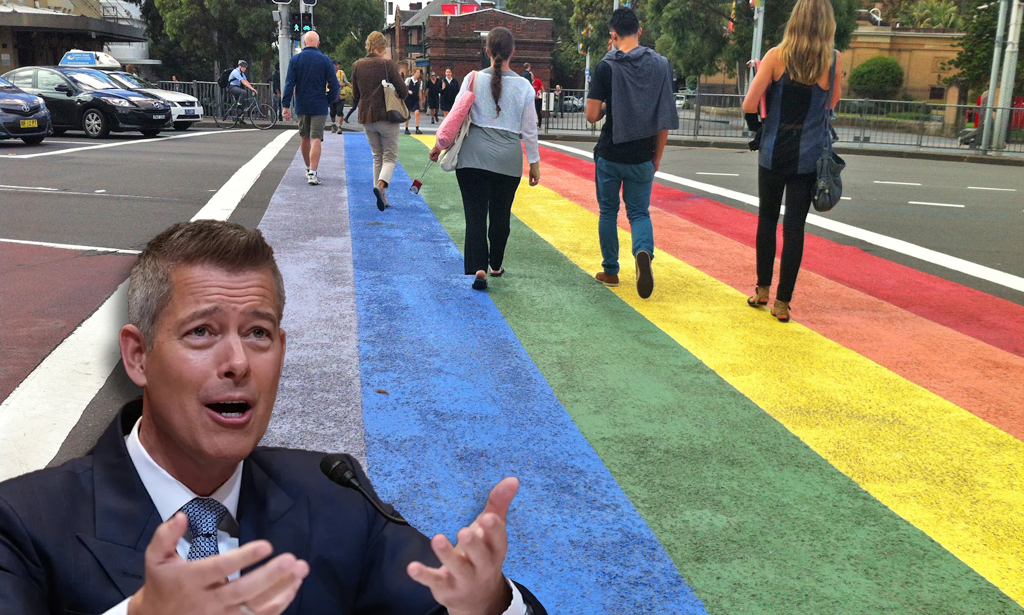A few months ago, I went to Memphis for a wedding. I asked the people at my downtown hotel how I should get to the venue, which was also downtown, on South Main Street. They told me it would be about a ten-minute drive. Which let me know it couldn't be that far away.
 The trolley in Memphis: You can use it to get there from here. Photo by Sarah Goodyear.
The trolley in Memphis: You can use it to get there from here. Photo by Sarah Goodyear.I decided to look at a map, and discovered that it would actually about a fifteen-minute walk, so we set out happily on foot. Imagine my surprise when I saw vintage trolley cars running along the precise route that I was walking (and would have driven if I'd listened to the hotel's advice). Trolley cars that cost just a buck to ride. Why hadn't the people at the hotel mentioned that I could get there on public transit?
Maybe because these trolleys, at least on first inspection, are presented as a quaint tourist ride rather than as functional public transportation. It's too bad, because -- as I discovered when riding home after the party -- they are indeed a cheap and efficient way to get from point A to point B on their admittedly limited route.
But according to Smart City Memphis, problems with the transit system there, which consists primarily of buses, run much deeper than a failure to market the trolleys as a viable transportation mode. The problem is that the city has failed to see the economic advantage a good mass-transit system can create.
In an excellent post today, this Streetsblog Network member blog wonders whether the city will be pushed to action by a law recently passed
by the Tennessee state legislature, enabling Memphis and other metro areas around the state to create regional transit authorities that could raise dedicated funding for mass transit:
It looks like Memphis Area Transit Authority has finally reached a long awaited point: put up or shut up.
For years, MATA has offered up numerous justifications for the sad state of public transit in Memphis. At a time when efficient, effective mass transit is a competitive advantage for cities attracting talented workers, ours does just the opposite.
For many students and young workers who come here, MATA becomes a symbol for a city that just can’t seem to get its act together. And it’s not a bus that they take getting out of here fast.
We won’t repeat the reasons why we are so focused on 25-34 year-olds because you’ve probably memorized it by now, but suffice it to say that we are bleeding this crucial demographic.…
Operating with the attitude that public transit is for poor people with no other choices, MATA is a significant obstacle to the kind of progressive image (and more important, reality) that other cities like Nashville are using as a lure for talented workers.
Focus groups with college-educated workers here tell us that they expected a city of Memphis’ size to have a modern, welcoming, efficient public transit system. Instead, they complain that the recruiters’ promise of a lower cost of living was misleading because “no one told us we’d have to buy a car.”.…
Perhaps, just perhaps, it begins a “no excuses” era for MATA and ushers in the opportunity for the [Memphis Area Planning Organization] to think more boldly and broadly about the future of public transit in our community.
Other good reading from around the network: Bikes and buses are going together more and more often in Sioux Falls, SD, according to The MinusCar Project. Bike Portland reports that Google's photo-taking "Street Trike" is hitting some bike trails. And in case you haven't heard about the incident in New York's Central Park in which a FOX News writer allegedly assaulted a cyclist with his SUV, you can read about it on NY Bicycle Transportation Examiner.





